by Daniel Hathaway
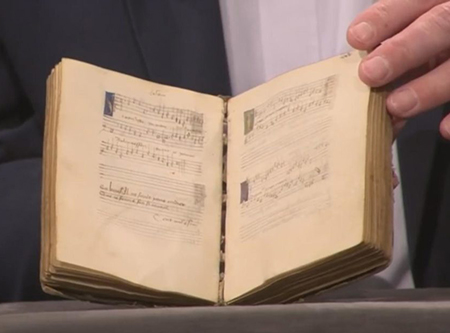
“Unbelievable. It’s like suddenly finding a dozen new drawings by Rubens!” said a researcher at the Alamire Foundation of the Catholic University of Leuven in Belgium, which owns what is now known as the Leuven Chansonnier. “We hope that we’ll be able to find out who created the songs. The 38 known works are very interesting as well, because they’re often different versions from the ones we already know.”
When Les Délices and its Chicago counterpart, The Newberry Consort, were casting about for a collaborative project, the Leuven Songbook came immediately to mind for both directors, Debra Nagy and Ellen Hargis. “I told Debra we’d love to do something with that,” Hargis said in a telephone conversation, “and she said, ‘So would we. It doesn’t make any sense to do two programs, so why not do it together?’”
A collaboration made all the more sense because the two groups share a common pool of performers, which for this project includes Hargis (soprano), Nagy (harp, voice, and Medieval winds), David Douglass and Allison Monroe (vielle and rebec), Jason McStoots (tenor), Daniel Fridley (baritone), Charles Weaver (lute), and Charles Metz (organetto). “Almost everyone has worked with someone else in some configuration,” Hargis said.
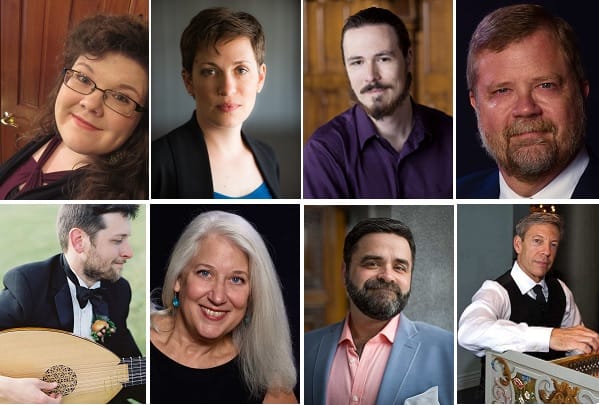
The concerts will visit 14 selections from the Leuven book, including 6 of the unique songs. “The collaboration is mostly on Debra’s shoulders. She has curated the program and drafted the instrumentation. Of course when we start rehearsing, we make adjustments if something doesn’t work,” Hargis said. “And the Newberry Consort has acquired a beautiful late Medieval organetto that we really wanted to feature this year, so we stirred that into the program.”
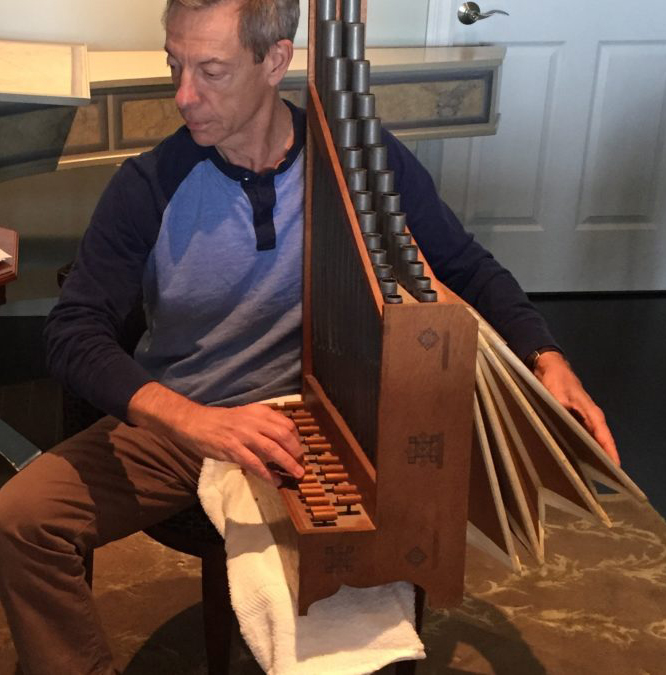
Hargis promises that the multimedia feature of the performances is going to be stunning. “The woman who does the graphic design for the projections doesn’t just make pictures with supertitles printed on them. She’s a musicologist as well as a graphic designer, and so she brings all her research chops to putting together these presentations. Tying in imagery from the Roman de la Rose to support the narrative that Debra has created around these lovers and their journey through the ups and downs of their affair will give our audience some of the context that those of us who are really immersed in the period already enjoy. Sharing a strong visual element with the audience helps bring the music out of the realm of the intellectual and into the sensual a bit more.”
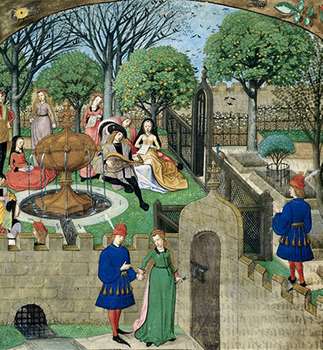
As was the practice in the late Middle Ages, composers aren’t identified in the chansonnier, and that makes a fun guessing game for the musicians. “As we work through the pieces, we’ll say, ‘boy, this sounds like Ockeghem,’ or ‘this doesn’t sound at all like Binchois,’ or ‘this reminds me of Agricola,’” Hargis said. “We’re constantly struck by thematic material, devices, or clichés that we know from other composer’s works, and if we wait long enough, we’ll probably get some pretty confident attributions from the experts. But they’re all gorgeous pieces, and quite varied. I’ve had such a good time learning them.”
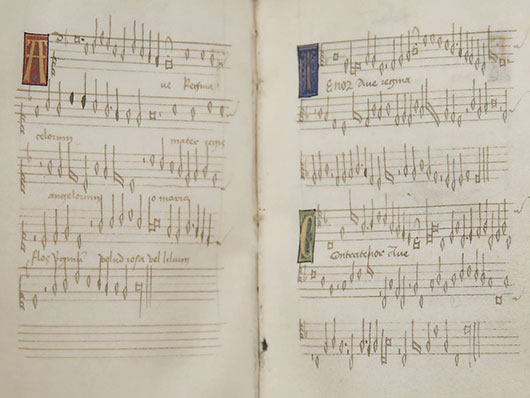
Tickets for the three Northeast Ohio performances can be reserved online.
Published on ClevelandClassical.com January 15, 2019.
Click here for a printable copy of this article



